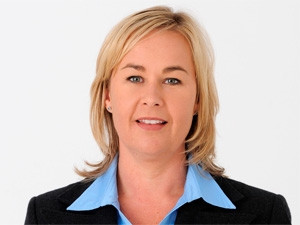
Whether you are in marketing or IT or, frankly, any kind of business, technology is likely to disrupt your way of doing things in a profound way in the next year.
So says marketing specialist Nicola Byers, speaking at the recent DUO Marketing + Communications networking breakfast.
"To successfully navigate this challenging new business environment, marketers will have to take heed of a number of key trends and quickly learn how to use them to their advantage," she said.
Byers outlined 10 key technology trends that will drive business in 2014. "For business owners, technologists and marketers, these are the technology trends that will likely impact their lives in the coming year."
1. Governance will evolve from an obligation to a true value-add for customers and staff alike.
2. The management of multiple suppliers will be actively tested through the service integration model.
3. As consumers seek more powerful devices and applications, the pace of technological change will increase exponentially, creating new competition in nearly every field, and the disruption and realignment of many industries.
4. Companies will have to reinvent themselves to tap into the economic opportunities presented by the emerging six countries - Brazil, India, Russia, China, South Korea and Indonesia - which will account for more than half of global GDP growth by 2015.
5. Business decision-making will be based on analysing big data, and access to this data will extend to mobile devices.
6. The world will become 'mobile-first', with mobile experiences eclipsing the desktop and tablets and other smart devices entering the enterprise environment en-masse.
7. The growth of the cloud will make devices less important than the services accessed through them.
8. The Internet of Things, referring to devices (instead of people) connected to the Internet, will start evolving into the Internet of Everything as new technologies connect everything - from clothes to cars to consumable products - to the World Wide Web.
9. Payments will evolve, with mobile phones becoming a mainstream payment device and virtual currencies growing in adoption.
10. Revolutions will be seen in various spheres, including telecoms, which has taken over from mining as the big money generator in Africa, and the Internet itself, which is currently being reimagined by a growing social consciousness movement that wants to take it back from governments and large corporations.
Byers added that, irrespective of whether marketers are marketing to a business-to-business (B2B) or consumer-focused (B2C) market, at the receiving end of any communication is a person. This is where the ultimate engagement needs to lie.
Judith Middleton,CEO of DUO Marketing + Communications, says she's seen a constant stream of revolutionary new technologies over the past decade that have changed the way companies do business.

"From cloud to mobile apps and the ever-demanding social media platforms, there has been no shortage of game-changing tech, each introducing far better reporting tools and measurability criteria. For marketers to be successful, we will need to employ innovative new thinking that navigates the hugely complex marketing environment, while still staying true to the fundamental values that have made us successful in past."
Middleton outlines five tips for marketers on how they can still be effective in this disruptive new environment:
1. In a world of infinite customer choices, marketers need to learn how to harness new technologies so that their brand is always top-of-mind during any purchase decision-making. Marketers will have to understand that the definition of value for each customer is different - some want immediate customer complaint resolution but have neither tool to reach or influence this effectively. The role as marketers is to ensure that marketers meet their customers' via the appropriate channels while maintaining a consistent brand experience at all times.
2. To do this effectively, marketers need to have a strategy and quality content. Customers are drowning in a sea of information and it's become a huge challenge to break through the clutter. "Marketers need to apply the traditional PR tool of clear, consistent messaging to ensure their brand is positioned correctly against competitors, and deliver useful content to their target audiences, in the right format, at the right time," says Middleton.
3. Monitoring tools will help marketers find gaps in the ongoing customer conversations relating to their industry where they can deliver the content. Staying on top of customer needs and requirements is the only way to ensure effective delivery of content.
4. By using monitoring and digital tools, marketers can prove a measurable ROI based on key business objectives. "Discerning budgets have brought the need for proper reporting starkly to light, and the industry's effectiveness will be measured against how marketers report back on the impact of their various marketing and communication activities," she says.
5. In this sea of change, marketers must not lose sight of the values that have made them successful in the first place. With so much doubt and uncertainty, business principles such as integrity, consistency and transparency are more important than ever.
Share